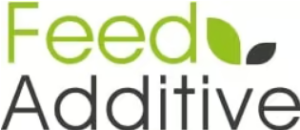Document type : article published in Feed & Additive Magazine
Authors: Jacopo Moccia, Lizzie Rowe
Preview: Industrial insect farming is starting to soar in Europe. It is touted as a 'sustainable' form of agriculture with insect facilities seeming to have a smaller environmental footprint than other livestock systems. Yet, behind its image as a 'sustainable' food source for people, insect farming is mainly about insects being used as feed for animals, with the growing industry predominantly driven by a need to feed other farm animals in intensive systems.
Therefore, its success depends on an increased demand for (and consumption of) animals, shifting focus from the necessary move towards a more plant-based diet, that is an integral aspect of creating more sustainable food systems. The latter, moreover, is an objective of the European Union (EU).
The wrong answer to the wrong question
However, the distinction between farming insects for food or feed is not readily made. Farmed insects are claimed to be sustainable because they are "alternative proteins" that could reduce the human consumption of (other) animal products.
The term "alternative" is poorly chosen, unlike yeasts, algae or cultivated meats, insects are animals. This is not merely a semantic issue, misrepresenting the nature of insect farming leads, inevitably, to misunderstanding the industry and its impacts on the food system.
Insect farming does not answer the question of how to make the food system more sustainable, because it does not ask it. Insect farming is the wrong answer to the wrong question.
Worryingly, the effects of this expanding sector and its apparent contradictions have flown mostly under the EU's radar. There are significant knowledge gaps among key decision-makers about how industrial insect farming could affect animal welfare, the climate and our food systems. This context is, however, critical in shaping the industry as it develops, as well as the various food, farming and animal welfare legislations it interconnects with.
Unfortunately, there is no joined-up, systemic nor strategic thinking in the EU regarding insect farming. [...]As a result, the welfare of insects in these farming systems has been neglected in decisions made about the sector so far, with little acknowledgement of their behavioural needs or even their sentience.





